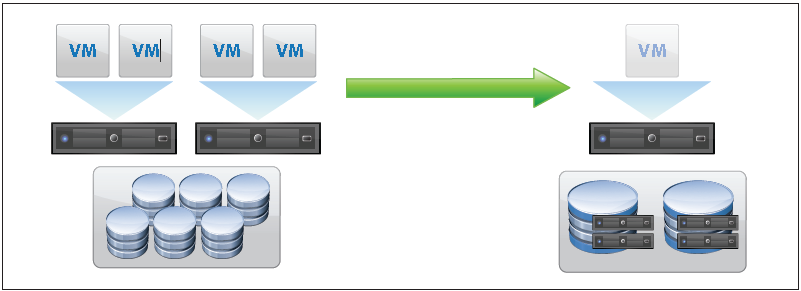Source - Storage I/O Control Technical Overview and Considerations for Deployment - Technical White paper
What is SIOC?
Storage I/O Control (SIOC) provides storage I/O performance isolation for virtual machines, thus enabling VMware® vSphere™ (“vSphere”) administrators to comfortably run important workloads in a highly consolidated virtualized storage environment. It protects all virtual machines from undue negative performance impact due to misbehaving I/O-heavy virtual machines, often known as the “noisy neighbour” problem. Furthermore, the service level of critical virtual machines can be protected by SIOC by giving them preferential I/O resource allocation during periods of congestion. SIOC achieves these benefits by extending the constructs of shares and limits, used extensively for CPU and memory, to manage the allocation of storage I/O resources. SIOC improves upon the previous host-level I/O scheduler by detecting and responding to congestion occurring at the array, and enforcing share-based allocation of I/O resources across all virtual machines and hosts accessing a datastore.
What is SIOC?
Storage I/O Control (SIOC) provides storage I/O performance isolation for virtual machines, thus enabling VMware® vSphere™ (“vSphere”) administrators to comfortably run important workloads in a highly consolidated virtualized storage environment. It protects all virtual machines from undue negative performance impact due to misbehaving I/O-heavy virtual machines, often known as the “noisy neighbour” problem. Furthermore, the service level of critical virtual machines can be protected by SIOC by giving them preferential I/O resource allocation during periods of congestion. SIOC achieves these benefits by extending the constructs of shares and limits, used extensively for CPU and memory, to manage the allocation of storage I/O resources. SIOC improves upon the previous host-level I/O scheduler by detecting and responding to congestion occurring at the array, and enforcing share-based allocation of I/O resources across all virtual machines and hosts accessing a datastore.








